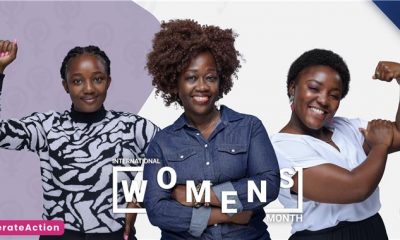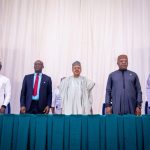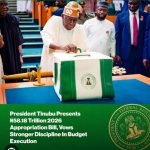General
IWD 2024: It Will Take 50 Years to Close OECD Gender Pay Gap—PwC

By Adedapo Adesanya
A new study from top consultancy firm, PricewaterhouseCoopers (PwC), has shown that it would take more than half a century to close the average gender pay gap across all 33 Organisation for Economic Co-operation and Development (OECD) countries.
To mark International Women’s Day 2024, PwC has released two studies, the Women in Work Index and Inclusion Matters, finding that global progress on achieving gender parity at work continues at a sluggish rate.
Now in its 12th edition, the latest data from the 2024 Women in Work Index (WiW Index) measures progress towards gender equality at work across the OECD, taking in five indicators that frame PwC’s analysis and measure various indicators of gender equality in the workplace, one of which is the gender pay gap.
PwC said that despite some progress over the past decade, this year’s analysis shows there is still a considerable way to go to reach gender parity at work across all five indicators.
Over the last decade, the average Index score increased from 56.3 in 2011 to 68 in 2022. In the latest Index update, the average OECD score improved by approximately two points from a score of 66 in 2021 to 68 in 2022.
Between 2021 and 2022, the majority of the improvement across the OECD was driven by an increase in the female labour force participation rate from 70.8 per cent to 72.1 per cent and a fall in the female unemployment rate from 6.4 power to 5.3 per cent.
However, the average gender pay gap across the OECD widened from 13.2 per cent to 13.5 per cent over this period. This shows that despite greater participation, women remain in a considerably weaker position in terms of labour market returns as compared to men.
Since the inception of the Index in 2011, the gender pay gap has been one of the indicators with the slowest improvement, narrowing only three percentage points between 2011 and 2022 across the OECD.
In terms of country ranking, Luxembourg ranks first on the WiW Index, followed by Iceland and Slovenia. The top five countries on the Index in 2021 continue to rank in the top five in 2022, but the ordering has changed.
Luxembourg’s strong performance was driven by an improvement on all indicators and especially by the fact that the country continues to have the lowest gender pay gap across the OECD. At -0.2 per cent, Luxembourg’s gender pay gap is negative, meaning that on average, the median level of pay is higher for women than men. The Nordic countries, Finland, Norway, Denmark, Sweden and Iceland, all appear in the top 11.
Mexico has scored the lowest on the Index since 2018. Its poor performance in 2022 was mainly driven by a high gender pay gap of 17 per cent along with a low female labour force participation rate of 50 per cent compared to a 14 per cent gender pay gap average across the OECD and a 72 per cent female participation rate.
Australia recorded the biggest improvement in its rank, rising seven places from 17th place in 2021 to 10th place in 2022, with a 6.6-point increase in its Index score. This was driven by an improvement across all five indicators and in particular, the gender pay gap, which fell from 14.2 per cent in 2021 to 9.9 per cent in 2022.
Conversely, the UK experienced the largest fall in the ranking, dropping four places from 13th in 2021 to 17th in 2022. This was largely a relative change despite a 1.1 point increase in the UK’s Index score, implying that the UK is being outpaced by other countries in terms of progress made towards achieving gender equality at work. The UK’s gender pay gap also increased from 14.3 per cent in 2021 to 14.5 per cent in 2022.
PwC’s Inclusion Matters research confirms that disparity in pay is a pain point for women in the workplace. It found that only 39 per cent of women feel they are being fairly rewarded financially for their work.
PwC drew insights from its Global Hopes and Fears Survey 2023, to compile the Inclusion Matters research, sharing fresh gender-focused perspectives from close to 54,000 workers globally, almost 23,000 of whom are women.
The research includes a Workplace Inclusion Indicator Index that measures three key dimensions of inclusion: belonging, fairness, and inclusive decision-making – and found that a statistically significant gender gap in favour of men.
The research found that there is a significant gap between the inclination of men and women to ask for promotions (-9 points) and pay raises (-8 points). However, women with Inclusion Index scores in the top quartile are 1.4 times more likely to ask for a raise, and 1.5 times more likely to ask for a promotion. They are also 2.2 times more likely to recommend their employer as a place to work.
Women’s turnover intentions increased (+8 points) this year with one in four women planning to change employers in the next 12 months, just slightly below the turnover intention rate for men at 27 per cent. Highlighting a further reason why inclusion matters, women with higher inclusion scores are 1.2 times less likely to change employers.
The report also finds that inclusion is positively correlated with self-driven development and women feeling higher levels of inclusion are 1.7 times more likely to be actively seeking out opportunities to learn and develop new skills.
It was also found that inclusion supports greater readiness from women to future-proof their careers which will be critical in driving gender equity gains at work. Women with high inclusion scores foresee greater benefits to their jobs from AI (+6 points), have a clear sense of how the skills their jobs require will change in the next five years (+14 points), and are more confident their employers will support with upskilling on key development skills (+21 points).
Both women and men who have hybrid work patterns – defined as having a mix of in-person and remote working – have the highest inclusion scores when it comes to work patterns. Women with higher inclusion scores are also less likely to be feeling the impact of overwork and 1.4 times less likely to say their workloads are frequently unmanageable.
It was also confirmed that job level matters as women in senior executive and management positions felt significantly higher levels of workplace inclusion than women in non-management positions (+9 points).
Millennial women feel the highest level of inclusion in the workplace, followed by Gen Z. However, Gen Z is the only generation where women feel similarly included to men.
Women working in the technology industry had the highest Inclusion Index score across all 26 industries included in the research and were one of only four industries for which women had slightly higher inclusion scores than men.
Speaking on the result, Ms Olusola Adewole, Partner and Workforce Transformation Leader, West Market Area, PwC, said “At PwC, we truly believe that inclusion matters in driving progress towards gender parity. Our research shows workplace inclusion is an important lever in propelling women’s development and advancement. A workplace where women feel that they belong, are included in decision-making, and are treated equitably is a workplace where they can thrive.”
General
Minister Advocates Coordinated, Trust-Driven Government Communication
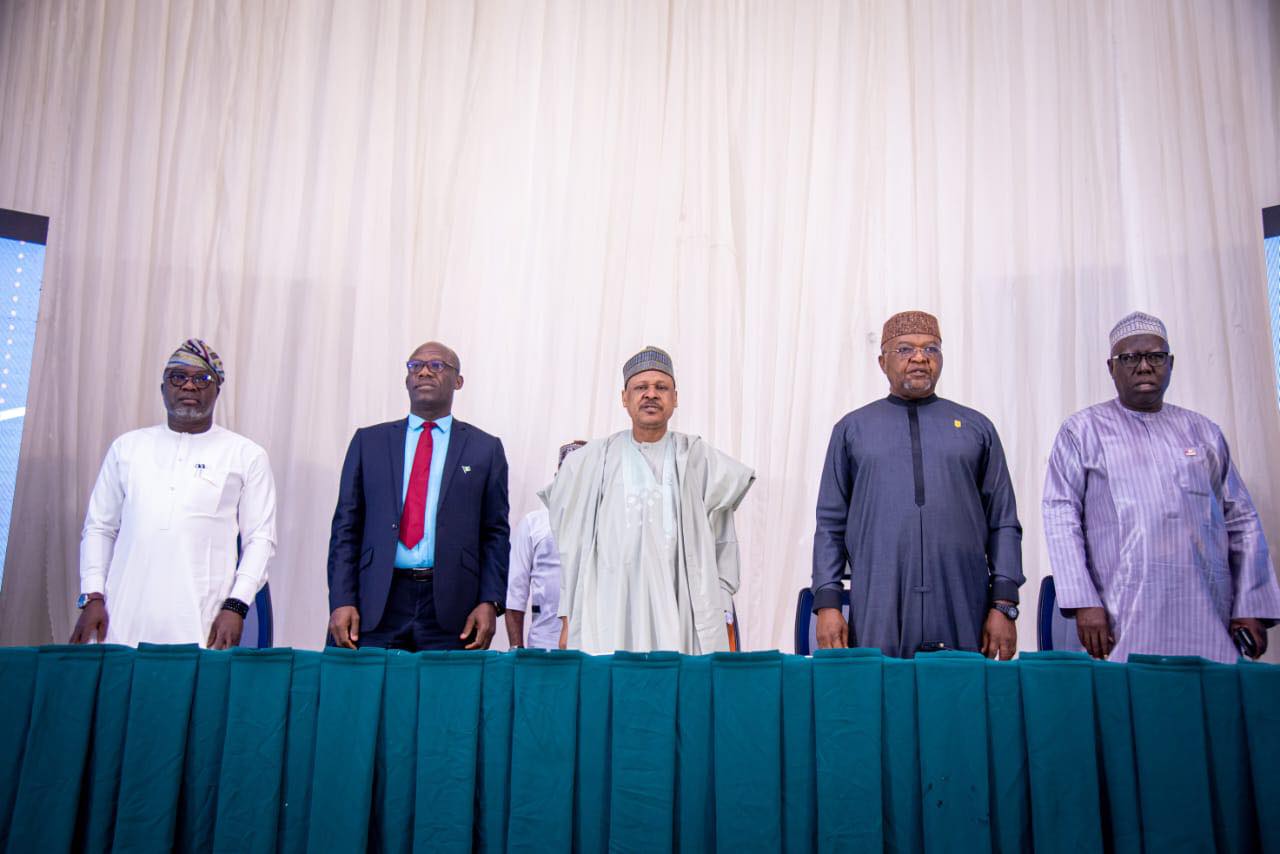
By Aduragbemi Omiyale
The Minister of Information and National Orientation, Mr Mohammed Idris, has emphasised that unified government messaging remains very critical to restoring public trust, especially in delivering the Renewed Hope Agenda of President Bola Tinubu.
He said this on Thursday in Abuja at an interactive session with Directors of Information and Resident Information Officers (RIOs) on grade level 14-17, deployed across Ministries, Departments and Agencies (MDAs).
The event, according to a statement issued on Friday by the Director Public Relations and Protocol of the ministry, Mr Suleiman Haruna, was themed Aligning Public Information with the Renewed Hope Agenda: Rebuilding Trust Through Effective, Transparent Communication.
The Minister noted that government officials must adopt a unified, coordinated, and trust-driven approach to government communication.
He posited that public trust remains the most valuable asset of government communication, stressing that information officers must be guided by honesty, credibility, and consistency in their work.
“Public trust is our most important capital. Once credibility is lost, no amount of messaging can fix it,” the Minister said, warning that fragmented messaging and parallel communication channels weaken government credibility and confuse citizens, insisting that the government must speak with a single, clear, and consistent voice.
“We are one government serving one national interest, and our communication must reflect that unity,” he said.
Mr Idris urged Resident Information Officers to see themselves as active partners within their host MDAs rather than passive observers, encouraging them to engage proactively with Ministers, Permanent Secretaries, and agency leadership, noting that professionalism, relevance, and initiative are key to earning trust and influence.
Addressing the growing pressure of misinformation and the speed of digital media, the founder of Blueprint Newspaper stressed the importance of timely and accurate communication, noting that delays often create space for false narratives. While reaffirming the federal government’s commitment to freedom of expression, he said such freedom must be exercised responsibly.
The Minister also outlined steps being taken to strengthen professionalism within the information cadre, including mandatory periodic reporting, improved deployment processes, continuous training, and stronger institutional support. He disclosed that the Federal Government has begun restoring the National Institute of Public Information to boost capacity building for public communicators.
He called for teamwork and mutual respect, reminding participants that they are central to the projection of government policies and achievements and that they must align their work with the priorities of the Renewed Hope Agenda.
General
Senate Forms Seven-Man Committee to Harmonise Electoral Act Amendment Bill
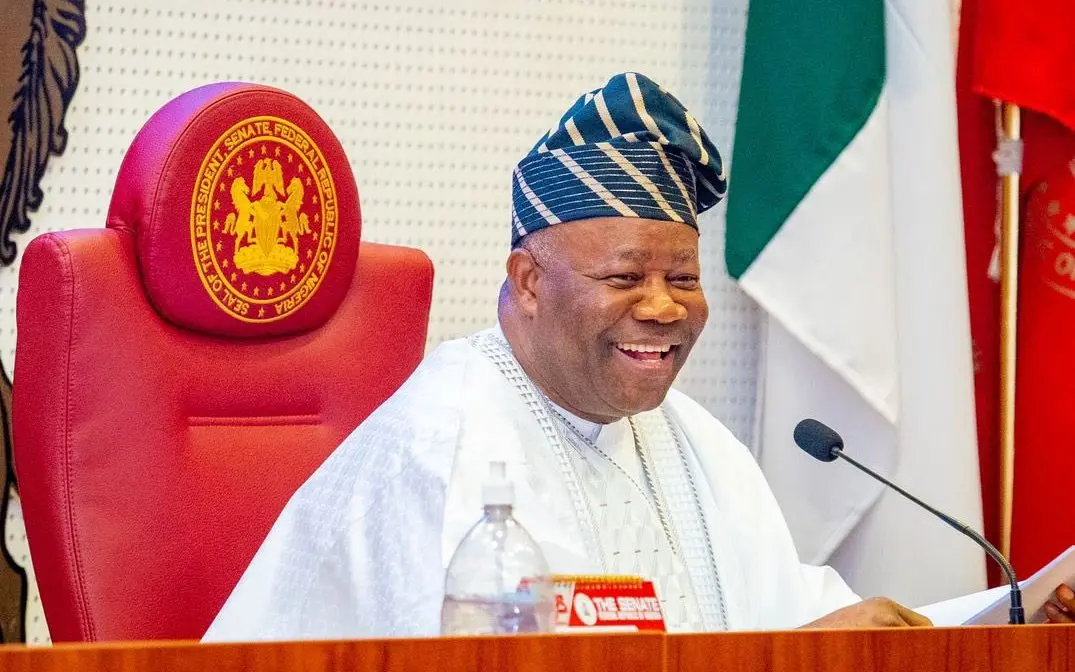
By Adedapo Adesanya
The Senate has constituted a seven-man committee to harmonise contributions and opinions on the Electoral Act Amendment Bill, 2026, with a mandate to present a consolidated report to the chamber next Tuesday.
The decision followed over two hours of consideration of the bill’s provisions during a closed-door session on Thursday.
The committee is chaired by the Chairman of the Senate Committee on Judiciary, Human Rights and Legal Matters, Mr Niyi Adegbomore.
Other members are Senators Adamu Aliero, Aminu Tambuwal, Adams Oshiomhole, Danjuma Goje, Tony Nwoye, and Titus Zam.
The group has three days to conclude its assignment and submit its report for consideration at the next plenary session scheduled for next week.
The Senate on Thursday commenced consideration of the Electoral Act 2022 (Repeal and Re-enactment) Bill 2026, moving into a closed-door session to review documents submitted by the Chairman of the Senate Committee on Electoral Matters, Mr Simon Lalong.
The Electoral Act (Repeal and Enactment) Bill, 2025 would expand voter participation, safeguard against electoral fraud, and strengthen institutional capacity of the Independent National Electoral Commission (INEC).
The closed session was convened to allow lawmakers to thoroughly examine the proposed amendments and supporting documents before engaging in further legislative debate on the bill.
This development comes after the upper chamber deferred consideration of the bill on Wednesday, giving lawmakers time to prepare for a detailed review.
Although the House of Representatives has already passed the bill, Senate President Senator Godswill Akpabio underscored the need for thorough scrutiny, given the bill’s implications for the nation’s electoral process.
“This is a very important bill, especially as it is election time. We must take our time to ensure justice is done to all, so that we do not end up at the tribunal,” he said.
According to the committee’s findings, a clause-by-clause analysis of the bill indicates that enacting the legislation would leave Nigerians with an enduring legacy of electoral integrity, enhance transparency, and boost public confidence.
The bill contains more than 20 key innovations distinguishing it from previous electoral frameworks, including provisions recognising the voting rights of prisoners and mandating INEC to register eligible inmates in correctional facilities nationwide.
It also prescribes sanctions for vote-buying ranging from a fine of N5 million to a two-year jail term, as well as a 10-year ban from contesting elections. It also recommends mandatory jail terms and higher fines for offences such as result falsification and obstruction of election officials.
Others include standardising delegates for indirect party primaries to prevent arbitrary determination of delegate criteria by party leaders, while addressing perennial funding challenges to the Independent National Electoral Commission (INEC) by mandating the release of election funds at least one year before polling day.
General
Dangote Cement Ibese Plant Launches Safety FairPlay Initiative
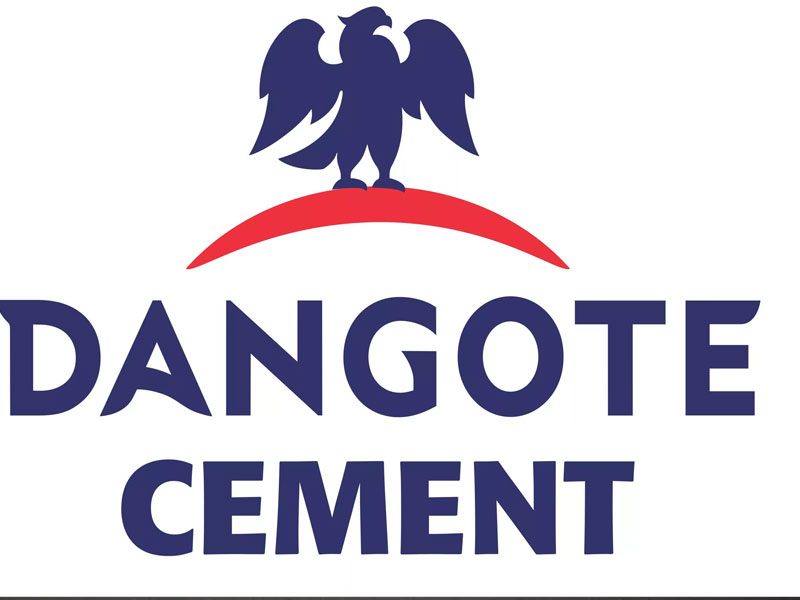
By Modupe Gbadeyanka
A Safety FairPlay initiative designed to drive behavioural change and cultural shift towards safety conducts among its employees has been launched by the Ibese Plant of Dangote Cement Plc.
This programme will drive lasting behavioural and cultural change through an equitable and transparent framework that promotes safe conduct. Built on three core pillars—Recognition, Correction (Coaching) and Discipline.
It rewards positive safety behaviour, ensures consistency in addressing at-risk actions, and encourages open reporting of incidents, near-misses and errors, the company said in a statement on Thursday.
The scheme will be replicated at all the plants of Dangote Cement, marking a significant milestone in strengthening the Company’s safety culture, the organisation added.
The pilot launch of this policy recorded impressive participation from both the management and employees, thus underscoring a shared commitment to safer work practices.
The Technical Director of the cement giant, Mr Anandam Duraisamy, emphasized the strategic importance of the initiative to the business and called on employees to champion a safety culture anchored on fairness, accountability, recognition, and continuous improvement.
He noted that the Safety Fairplay marks a defining moment in the company’s journey toward building a workplace where safety is not just a policy, but a shared mindset—an everyday habit that defines who we are and how we work. We are here to launch an initiative that aims to transform not only what we do, but how we think, act, and respond when it comes to safety.
“Safety FairPlay is about building trust, consistency, and accountability in how we manage safety. When people know that safe behaviour is recognised, risky actions are fairly addressed, and everyone is treated equitably, safety becomes a shared responsibility and a true part of our culture.
“This initiative is about behavioural and cultural change. It recognises that true safety excellence goes beyond equipment, procedures, or compliance; it begins with people-our attitudes, our choices, and our willingness to look out for one another.
“Every incident prevented, every risk spotted, and every safe action taken strengthens our organisation. And that strength comes from you—from each member of our workforce embracing safety as a personal responsibility and a collective value,” he stated.
Also speaking, the Ibese Plant Head of Health, Safety and Environment (HSE), Mr Elvis Akalusi, commended the management for driving the programme and applauded employees for their enthusiastic embrace of the initiative.
He affirmed that the Safety FairPlay Initiative would be fully embedded into the plant’s daily operations, with the full collaboration of all heads of departments.
“This initiative will offer the tools, coaching, recognition, and accountability needed to help each of us make safer decisions. But its success depends on our shared commitment—our courage to consistently do the right thing, even when no one is watching.
“Let us approach this new chapter with open minds and a determination to improve. Let us build a culture where speaking up is encouraged, learning is continuous, and mistakes become opportunities to grow—not reasons for fear,” he stated.
-

 Feature/OPED6 years ago
Feature/OPED6 years agoDavos was Different this year
-
Travel/Tourism9 years ago
Lagos Seals Western Lodge Hotel In Ikorodu
-

 Showbiz3 years ago
Showbiz3 years agoEstranged Lover Releases Videos of Empress Njamah Bathing
-

 Banking8 years ago
Banking8 years agoSort Codes of GTBank Branches in Nigeria
-

 Economy3 years ago
Economy3 years agoSubsidy Removal: CNG at N130 Per Litre Cheaper Than Petrol—IPMAN
-

 Banking3 years ago
Banking3 years agoSort Codes of UBA Branches in Nigeria
-

 Banking3 years ago
Banking3 years agoFirst Bank Announces Planned Downtime
-

 Sports3 years ago
Sports3 years agoHighest Paid Nigerian Footballer – How Much Do Nigerian Footballers Earn


